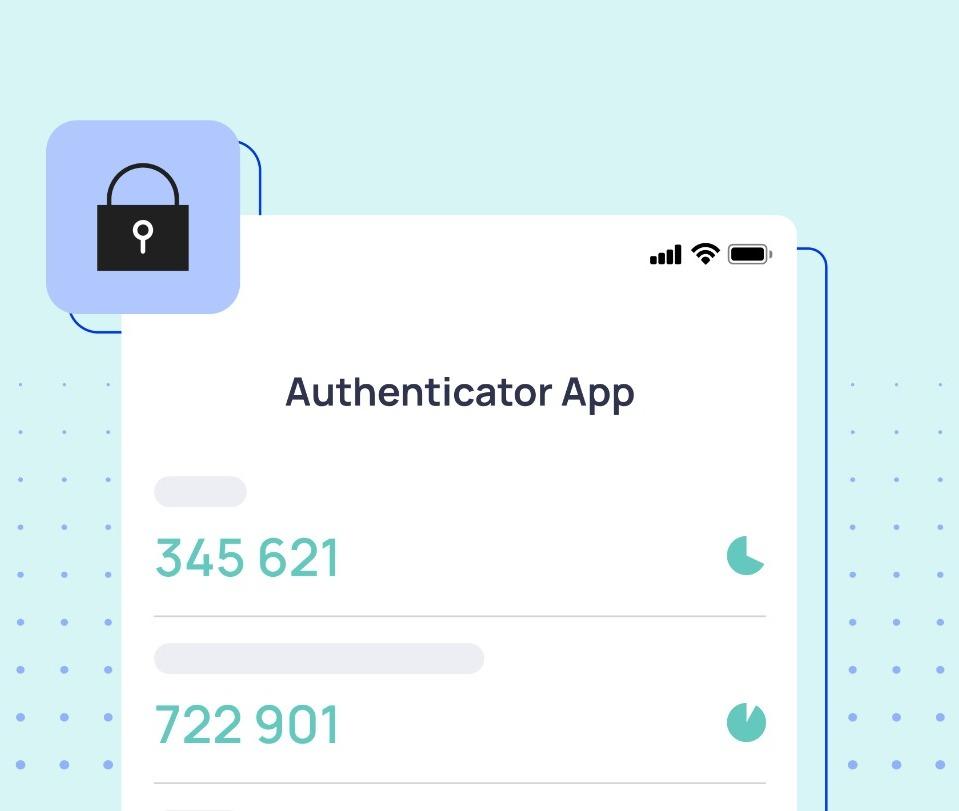
Startups are at the forefront of digital innovation and growth. The global disruptions caused by the pandemic served as a catalyst for their emergence, compelling organisations to pivot towards e-commerce and online operations. As startups increasingly embrace digital platforms to showcase their offerings, the need for secure digital transactions becomes paramount.
A single security breach could have significant consequences, impacting any organisation's viability and reputation. Furthermore, startups often operate with limited resources and may lack the robust security measures needed to fend off cyber threats effectively.
Let's explore the 10 best practices to ensure secure digital transactions for startups.
1. Strengthen your Team's Cybersecurity Know-How
It is crucial for every team member to understand the potential cyber threats and how to mitigate them. Ensuring that every employee can recognise and respond to security threats should be your first line of defense. Effective training that ensures secure digital transactions for startups include:
● Phishing Awareness:![]()
Enriches employees to identify phishing attempts and provides feedback through simulated campaigns.
● Secure Coding Practices:![]()
Essential for startups developing software or maintaining websites. It covers top security risks and common coding vulnerabilities.
● Security Best Practices and Protocols: ![]()
Regularly conduct training and awareness sessions for startups on key cybersecurity topics, including password policies, data laws and regulations, secure digital transactions for startups, and customer data management.
● Data Protection Laws and Compliance: ![]()
Ensures startups comply with relevant data protection laws to avoid legal issues.
2. Strengthen your Authentication: Essential Methods for Secure Digital Transactions
Startups must transcend traditional authentication methods such as usernames and passwords and enable Multi-Factor Authentication (MFA) that essentially demands multiple verification layers to mitigate unauthorised access risks effectively. Even in the event of one factor's compromise, MFA fortifies security, especially crucial for safeguarding sensitive data across networks, databases, and online accounts.
● Biometric Verification:![]()
Harnesses unique biological traits like fingerprints or facial recognition for seamless and secure user authentication.
● One-Time Passwords (OTPs):![]()
Dynamically generated codes dispatched to the user's device or email, each valid for a single session or transaction, ensuring heightened security.
● Hardware Tokens:.jpg)
Physical devices designed to generate secure codes, offering an added layer of protection against unauthorised access.
● Software Authentication Apps:
Applications such as Google Authenticator or Authy leverage time-limited codes generated on users' devices for robust login authentication.
By embracing these advanced authentication methodologies, startups can fortify their digital transactions with layers of security.
3. Use Encryption for Data Protection
Encryption is vital for secure digital transactions for startups, safeguarding sensitive data from cyber threats and complying with regulations. It converts data into unreadable code, ensuring confidentiality during transmission and storage. Best practices for implementing encryption in digital transactions include:
● Encrypt Data at Rest and in Transit: Encrypt all sensitive data, both during transmission and when stored.
● Manage Encryption Keys Properly: Use a secure system to generate, store and handle keys. Rotate keys regularly and don’t store them with the data they encrypt.
● Apply End-to-End Encryption (E2EE): For sensitive communications, use E2EE where data is encrypted on the sender’s device and decrypted on the recipient’s device.
● Regularly Update Encryption Methods: As technology evolves, so do methods for breaking encryption. Regularly review and update your methods to ensure they comply with the latest security standards.
4. Don't Keep your Softwares Outdated
 Outdated software serves as a glaring vulnerability, offering a foothold for malware, ransomware, and other malicious exploits. This not only compromises critical information and customer data but also exposes startups to compliance breaches, where adherence to stringent security standards is paramount.
Outdated software serves as a glaring vulnerability, offering a foothold for malware, ransomware, and other malicious exploits. This not only compromises critical information and customer data but also exposes startups to compliance breaches, where adherence to stringent security standards is paramount.
Prioritise regular software updates and patches as your first line of defense against cyber threats to strengthen secure digital transactions especially for startups. These updates address security flaws & bolster software features, fostering a culture of robust security practices. By staying vigilant with updates, startups can ensure compliance with regulatory mandates while effectively safeguarding against emerging cyber threats, thereby fortifying their journey towards secure digital transactions.
5. Monitor and Audit Transactions Regularly
 Regular monitoring of digital transactions is essential for identifying and addressing potential security threats in real-time. This proactive approach helps in maintaining the integrity and security of financial operations within a startup. Here are some effective tools and techniques startups can use to monitor transactions:
Regular monitoring of digital transactions is essential for identifying and addressing potential security threats in real-time. This proactive approach helps in maintaining the integrity and security of financial operations within a startup. Here are some effective tools and techniques startups can use to monitor transactions:
● Real-Time Transaction Monitoring Systems: These systems track and analyse transactions as they occur, checking for unusual patterns.
● Automated Alerts: These trigger alerts for certain transactions, aiding in immediate fraud detection.
● Data Analytics: Data analytics help detect patterns and anomalies in transaction data.
● Audit Trails: This technique keeps logs of all transactions and system access, aiding in tracking origins and ensuring regulatory compliance.
6. Secure your Mobile and Web Applications
Mobile and web applications become prime targets for cyber attacks, as they are the most used and common mediums for making quick digital transactions. Implementing strong security measures is crucial to protect sensitive data and maintain user trust. Here are specific security measures startups should consider:
● Input Validation: Verify user inputs to prevent common web vulnerabilities.
● Secure Session Management: Use secure methods for authentication and session management.
● Secure APIs: Ensure APIs used by the application are secure and regularly updated.
● Access Controls: Enforce user permissions strictly, applying the principle of least privilege.
Security testing and certifications are crucial for application security and user trust. Regular testing detects and addresses vulnerabilities, while certifications show dedication to security. These practices should be ongoing, with updates and re-certifications as needed.
7. Develop a Response Plan for Security Breaches
Startups must be prepared to tackle security breaches swiftly and effectively to secure digital transactions. An incident response plan serves as a vital blueprint, guiding enterprises on how to respond in case of a breach.
● Preparation: This foundational phase involves training and equipping the response team with the necessary tools and authority to manage and mitigate security incidents.
● Identification: Swiftly monitor systems and networks for anomalies indicating a breach and establish clear criteria for defining incidents.
● Containment: Prioritise stopping the incident's spread initially and implementing long-term changes to prevent recurrence.
● Eradication: After containment, remove the root cause, such as malware, breached accounts or vulnerable software.
● Recovery: Carefully restore affected systems and monitor for weaknesses to prevent re-exploitation.
● Lessons Learned: Review incidents to refine response plans and enhance security measures based on documented findings.
The speed of an organisation’s response to a security breach is crucial. A swift response can limit data loss by quickly identifying and containing the incident. It can also reduce recovery time and costs by minimising the incident’s duration. Maintaining trust and reputation is important, and a quick, transparent response can help preserve customer relationships and give them the guarantee of secure digital transactions.
8. Secure APIs Integrated with Payment Systems
APIs (Application Programming Interfaces) play a critical role in enabling integrations and communications between different software systems, including payment systems. Ensuring the security of these APIs is crucial for protecting sensitive data and maintaining the integrity of secure digital transactions for startups. Here are some recommended guidelines for enhancing the security of APIs:
● Authentication and Authorisation: Implement strong mechanisms and strict checks.
● Secure Data Transmission: Use HTTPS for encryption.
● Rate Limiting: Limit API calls to prevent abuse and DoS attacks.
● Input Validation: Check input rigorously to prevent vulnerabilities.
● Regular Security Testing: Include in the API development lifecycle.
● API Gateway: Use for managing, monitoring, and securing API traffic.
APIs can still be vulnerable despite strong security measures. Common vulnerabilities include Broken Object Level Authorisation (BOLA), excessive data exposure, security misconfiguration, injection flaws and improper assets management. To avoid these, ensure users can only access authorised objects, limit data exposure, ensure secure settings and configurations, use safe API methods and proper input validation, and maintain an updated API inventory.
9. Leverage Blockchain for Enhanced Security
Blockchain technology is a decentralised digital ledger recording transactions across multiple computers. Transactions are recorded in blocks linked chronologically, ensuring data integrity and security through decentralisation and cryptographic hashing. While commonly associated with cryptocurrencies, blockchain's applications extend far beyond digital currencies.
Blockchain offers several distinct advantages for secure digital transactions for startups that may handle sensitive data or conduct numerous financial transactions:
● Tamper-Proof Records: Transactions can’t be altered without network consensus.
● Transparency: Secure data is visible to permitted parties.
● Reduced Costs and Complexity: Simplifies processes and reduces need for intermediaries.
● Enhanced Security: Decentralisation reduces risk of data breaches.
● Smart Contracts: Self-executing contracts automate and enforce terms.
● Improved Traceability: Creates an immutable product history, beneficial for supply chain management.
10. Partner with Trusted Security Vendors
Partnering with trusted security vendors is paramount for startups, especially concerning secure digital transactions. When selecting a cybersecurity vendor, startups must prioritise factors such as expertise, reputation, range of services, technology, compliance, customer support, and scalability.
These vendors offer invaluable benefits, including access to specialised knowledge, cost-effectiveness, proactive risk management, and skilled assistance in incident response and recovery. By aligning with reputable security vendors, startups can fortify their defenses against cyber threats, ensuring the security and integrity of their digital transactions. Startups can confidently navigate the challenges of cybersecurity and focus on driving their business growth, with the right partnerships in place.





